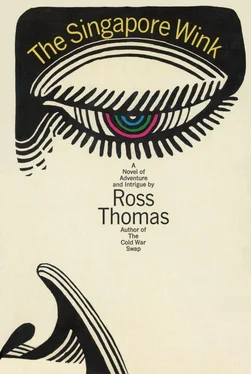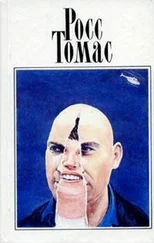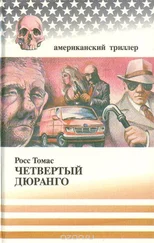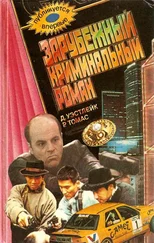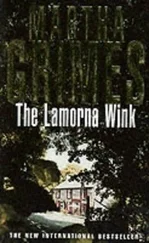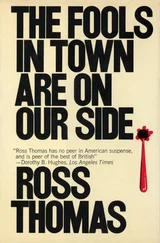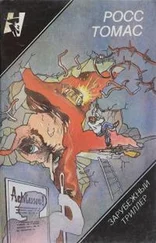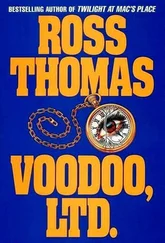“Where?” I said.
“They’re paying me five thousand to do it. It’ll cost you five thousand to find out where.”
“Seeing as how we’re both Americans and all,” I said.
“Yeah,” Nash said. “There’s that, too.”
A small herd of middle-aged sweaty-looking American tourists, necks festooned with cameras, were being channeled towards the registration- desk in the lobby by their leader, a fussy man in an electric blue shirt, who stamped his foot when one of his charges wanted to know why they weren’t staying at the Singapura like her sister, Wanda, did last year.
Trippet and I followed Nash through the crowd and out the door where he turned towards the trishaw stand. “I thought we were going to the other side of the Island,” I said.
“Just do it my way,” Nash said. “You take the second trishaw in line and tell him to follow mine.”
“To where?” I said.
“To Fat Annie’s.”
I said “Fat Annie’s” to our Chinese pumper and he grinned wickedly.
“Why didn’t you say ‘follow that trishaw?’” Trippet said, as we climbed in. “Would have lent some atmosphere, don’t you think?”
“I thought it was your line.”
We had traveled about a hundred yards when I poked my head around the canvas top of the trishaw and looked back. There was another trishaw about fifty feet behind us, but I couldn’t make out either of its occupants.
“I think we’re being followed,” I said. “Which is a pretty fair line itself.”
“Who?”
“Can’t tell.”
“Difficult to request more speed.”
“We might as well enjoy the ride.”
Fat Annie’s still didn’t look like much and Trippet said so when we arrived right behind Nash’s trishaw. “It’s got a nice parlor,” I said, and paid off our driver.
Nash was waiting at the door. “Let’s go,” he said.
The old woman with the long-stemmed pipe was still sitting on the low bench in the cubicle of an entrance. She ignored us as we went into the room with the rattan bar which held the new National cash register and the abacus. Fat Annie sat on her stool, three hundred pounds of joy, and called, “Hello, Snooky,” at Nash.
“He ready?” Nash said.
“He’s waiting,” she said and looked at me. “You were here the other night. Got time for a quickie?”
“Not tonight,” I said.
“How about your goodlooking friend?”
“Thank you, no,” Trippet said and smiled politely.
Nash was moving towards a door that led to the rear and we followed. “You boys come back,” Fat Annie called.
The door led to a dingy hall. We went down that and through another door and found ourselves in a narrow cul-de-sac that was just wide enough for the waiting trishaw whose thin-faced driver was perched on the bicycle seat smoking a cigarette.
“Somebody’s going to have to sit on somebody’s lap,” Nash said. “I didn’t know there was going to be three of us.”
“I’ll sit on yours,” Trippet said to me.
“Who’s following us, Nash?” I said.
“Cops, I guess.”
“Think this will fool them?”
“Annie will stall,” he said and climbed into the trishaw and said something to the driver in Chinese. I got in next to Nash and Trippet gingerly crawled onto my lap and his rear pushed the Smith & Wesson against my taped stomach and I bit my lip so that I wouldn’t yell. The driver said something to Nash who barked back in Chinese and we were off, the driver’s thin leg muscles bunching into hard knots as he pushed at the bicycle pedals.
He turned left at the entrance to the cul-de-sac and wound his way through packed streets. A few people tittered at the sight of three in a trishaw and Nash muttered something about how goddamned ridiculous it was for Trippet to be along anyhow. Some ten minutes later the trishaw turned down a street that I remembered led to the Singapore River. At the quay the driver stopped and Nash jumped out.
“Any time,” I said to Trippet.
“Sorry,” he said as he eased himself off my knees.
After a few moments of debate Nash paid off the trishaw driver and walked down the steps of the quay and kicked the sleeping Indian with the yellow teeth. He woke up smiling and began to untie the line that ran from his big toe to the runabout.
“Get in,” Nash said.
We got in, the Indian, too, and Nash started the motor and backed out into the river. He turned the boat upriver this time and wove in and out of the anchored tonkangs. We were well over fifty yards upriver when I looked back at the quay. Two men stood on its bottom step and they seemed to be staring at us, but I couldn’t tell who they were in the dusk.
We must have gone a mile upriver before Nash headed the runabout towards the right bank. He pulled up to the steps of the quay and the Indian jumped out and fastened one line to a metal rung and another, smaller one, to his big toe. He grinned his yellow teeth at us once, then curled up and went to sleep.
We went up the steps of the quay, crossed the loading area, and moved down another narrow alley. At the end of the alley Nash stopped at a building that looked like a garage, took out a key, and felt in the dark for the lock. He twisted the key, put it back in his pocket, and then slid the door open. It was a wide, high door and he grunted when he pushed at it Neither Trippet nor I offered to help.
Inside the garage was a fairly new Jaguar 240 sedan. “Yours?” I said.
“Mine.”
“The smuggling business must be good.”
“It’s okay,” Nash said. He handed me the key to the garage door. “Close it and lock up when I drive out.”
He started the Jaguar and backed it slowly out of the garage. I closed the door, locked it, and climbed into the back seat. Trippet sat in front. Nash switched on his lights and turned into a one-way street, traveled three blocks, and turned right. He was a rotten driver.
We wound our way through the commercial section of Singapore until we hit Upper Thomson Road. Nash made a left turn, barely missed a Volkswagen, and kept the Jaguar in second gear too long.
“How far?” I said.
“About eleven, maybe twelve miles to where we’re going,” he said.
We drove in silence for fifteen or twenty minutes except for when Nash cursed at fellow motorists who invariably were in the right. After fifteen minutes or so I looked back for the fourth time and noticed that the lights of the car behind us had still not moved any closer or any farther behind for a good quarter of an hour. I shifted the revolver in my waistband to what I hoped would be a more comfortable position and when that didn’t work out, I shifted it back.
At Yio Chu Kang Road a black Chevelle sedan cut in front of us, momentarily illuminated by the lights of the Jaguar. For once Nash didn’t curse.
“Friend of yours?” I said.
“Not mine.”
“How about the one behind us?”
“Who?”
“We’ve had a tail for the last twenty minutes,” I said. “Mrs. Sacchetti said she didn’t want any tails.”
Nash looked into his rear view mirror, probably for the first time that night, and the Jaguar veered to the left. Trippet grabbed for the wheel and got it back into line.
“Ill lose him,” Nash said.
“Let me out first,” Trippet said.
“Think you can do any better?”
“Anyone could.”
“Well, just watch, fellah.”
Nash pressed down on the accelerator and the Jaguar jumped ahead. He pulled up until he was only thirty or forty feet behind the black Chevelle, then blinked his lights three times in rapid succession. The Chevelle lights blinked twice. Nash cut the Jaguar lights completely and slammed on his brakes and the car skidded to a stop on the left-hand verge of the highway. He turned off the ignition.
Читать дальше
